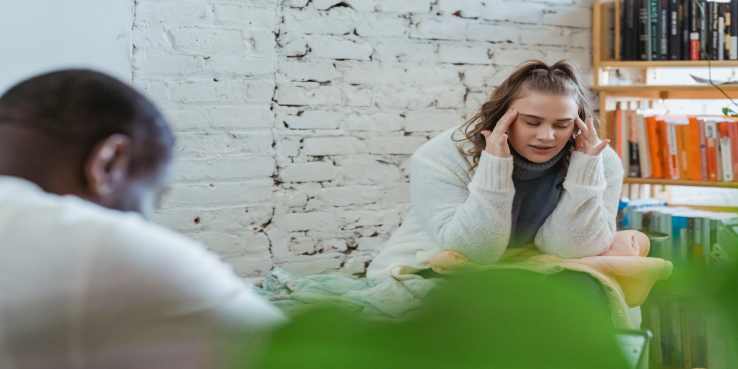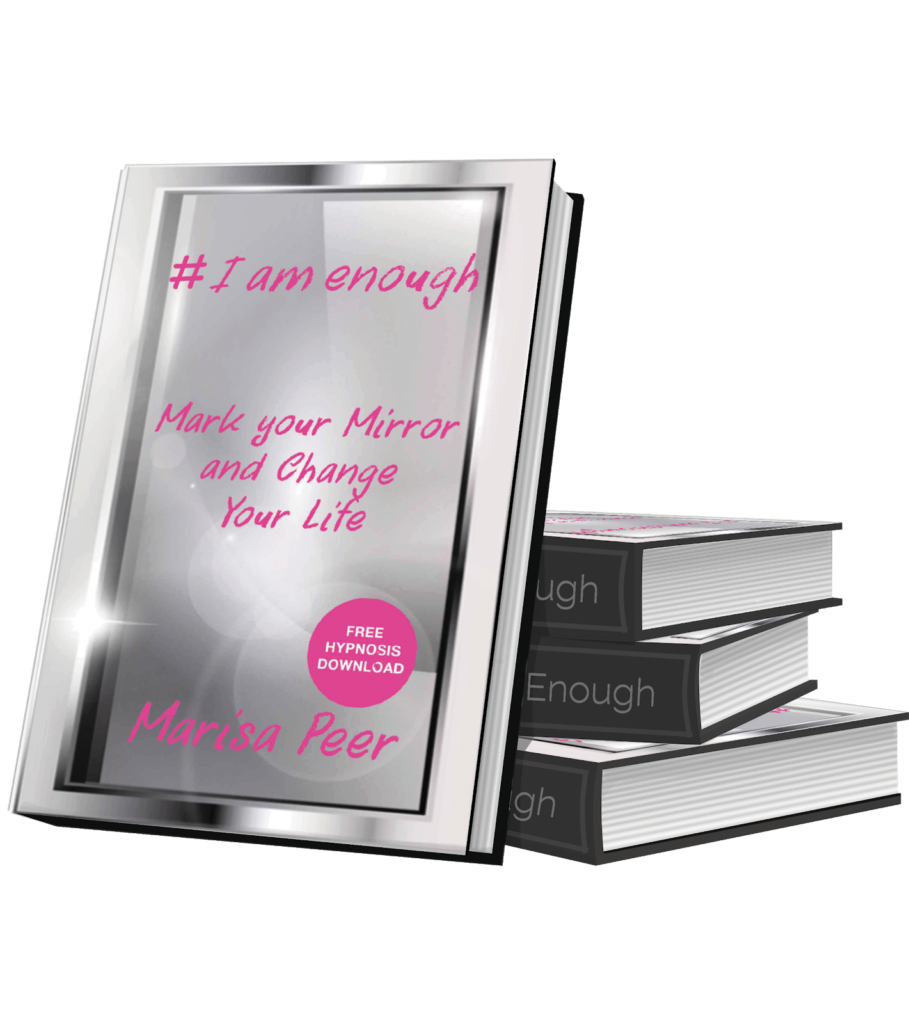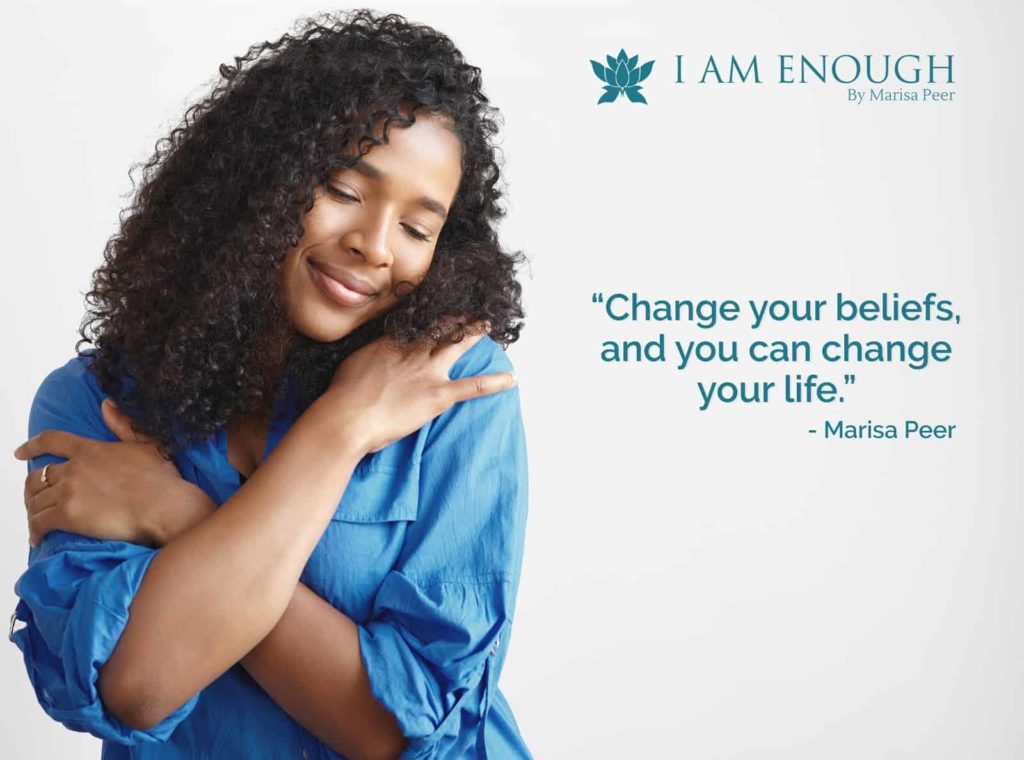According to the World Health Organization, roughly 3.6 percent of the world’s population has suffered from Post Traumatic Stress Disorder. However, it may be more common than you realize…
Can Infidelity, Emotional Abuse or Breakups Lead to Relationship PTSD?
The simple answer is yes. The NHS states that “any situation that a person finds traumatic can cause PTSD.”
‘Recovering from divorce’, ‘communication in relationships’ and ‘how to deal with mature relationship rejection and abandonment due to an affair?’ are all very real issues, which our readers have put forward for discussion*. This article will also explore the very real symptoms of PTSD and Post Traumatic Relationship Syndrome (PTRS), and specifically relationship PTSD with expert advice from globally renowned therapist Marisa Peer and others.
What is PTSD?
‘PTSD is estimated to affect about 1 in every 3 people who have a traumatic experience, but it’s not clear exactly why some people develop the condition and others do not’ states the NHS.
According to the NHS ‘Post-Traumatic Stress Disorder (PTSD) is an anxiety disorder caused by very stressful, frightening or distressing events. Someone with PTSD often relives the traumatic event through nightmares and flashbacks, and may experience feelings of isolation, irritability and guilt. They may also have problems sleeping, such as insomnia, and find concentrating difficult. These symptoms are often severe and persistent enough to have a significant impact on the person’s day-to-day life.’
What is Relationship PTSD?
The core theme for relationship PTSD seems to be a betrayal of trust. This can leave people feeling anxious, isolated, insecure, with low self-esteem and full of self-doubt. There can also be emotional triggers if something reminds them of the past or a bad event.
Melanie Shapiro, LICSW, who specializes in traumatic experiences, explained what it can feel like to Bustle: “Feeling like your life or relationship pattern will never change, isolating [yourself]. Not engaging in new relationships, withdrawing from friends, and potential new partners. Flashbacks, too: in new relationships and reliving old experiences from the past as if they are happening now.”
The cause relationship PTSD seems to be typically caused by infidelity, emotional abuse, or breakups. It can also occur following divorce, which has become much more common, leading to the same symptoms and effects.
Infidelity and Relationship PTSD

Randi Gunther Ph.D. a clinical psychologist, marriage counselor and author of When Love Stumbles: How to Rediscover Love, Trust, and Fulfillment in your Relationship writes in Psychology Today:
“Of all of the threats to a committed relationship I have treated in four decades of working with couples, the most difficult to heal is infidelity. When a trusted partner in a committed relationship betrays the sacred trust of the other, the relationship will undergo severe instability.
The partner who has been betrayed is emotionally tortured and humiliated when knowledge of the infidelity emerges. They are clearly in trauma and experience the same array of symptoms that professionals now describe as Post-Traumatic Stress Disorder. Similar to any others who have suffered threats to their physical or emotional well-being and security, they are disoriented and confused by what has happened.
Relationship PTSD makes both partners experience symptoms similar to the classical symptoms of PTSD:
- Repeated intrusive thoughts
- Unstable emotional regulation.
- Out of body experiences.
- Alternating between feeling numb and striking out in retaliation.
- Inability to stop scanning for any new data that might cause more distress.
- Feeling overwhelmingly powerless and broken.
- Needing to regain self-worth by assigning blame.
- Confusion and disorientation.”
Relationship PTSD and Post Traumatic Relationship Syndrome (PTRS)
Some experts refer to Post Traumatic Relationship Syndrome or PTRS as a newly proposed mental health syndrome, which occurs following the experience of trauma in an intimate relationship.
Relationship expert Dr. Tarra Bates-Duford, PhD, MFT, CRS, CMFSW told Bustle: “Essentially PTRS stems from the fear and mistrust of relationships. PTRS can be defined as an anxiety disorder that can occur subsequent to the experience of physical, emotional, or psychological abuse in the context of an intimate partner relationship.
Whether you qualify for PTRS, or are simply having a difficult time moving on, these feelings can be very real, and they can prevent you from finding a healthier relationship in the future. So the sooner you can seek treatment, the better.”
10 Post-Traumatic Relationship Syndrome Associated Symptoms:
- Feeling depressed, anxious, unsafe and hopeless, which may present in mood swings, irritability, impulsive destructive behaviours and/or frequent crying.
- Fear of relationships, commitment and getting hurt again.
- Sexual dysfunction, particularly for those who have been sexually abused.
- Loneliness and Isolation from friends, family and support network – feeling like you are alone in your feelings and that no one else could possibly understand.
- Low self-esteem, self-doubt and feeling worthless or unconfident.
- Feeling responsible or somehow to blame – that it’s your fault – you are unlovable.
- Attracting unhealthy relationships and playing out the same patterns of behaviour.
- Intrusive obsessive thoughts that can be overwhelming or distracting in daily life.
- Insomnia, difficulty getting to sleep or staying asleep, or disturbed sleep with nightmares and flashbacks.
- Difficulty moving on and/or trusting others, affecting future relationships.
Disconnection and a fear of rejection
In her latest book, I Am Enough: Mark your Mirror and Change your life, Marisa Peer says “Feeling disconnected or rejected can lead to all sorts of issues… It can manifest as a fear of intimacy, an inflated ego, or an addiction to eating, alcohol or drugs. Indeed, it doesn’t matter where the rejection or lack of connection comes from, it almost always leads to a person who feels as though certain things in life will never be available to them. And many modern-day ailments are a function of humans trying to fill the resulting emptiness or gap that they feel.”
Marisa explains “When we feel disconnected it’s like there is an empty void inside, a feeling like something’s missing. People often look for things to try to fill this emptiness – food, alcohol, drugs or addictive behaviour. However the only thing which can really fill the emptiness is a greater sense of meaningful connection, to ourselves and to others.”
How to Deal with Relationship PTSD?
The question is, can changing your thinking really change your life?
In this article Hypnosis for Depression, Marisa explains “I have helped thousands of clients gain freedom from depression and mental health problems with Rapid Transformational Therapy™, which gets to the root cause of emotional, physical or cognitive issues. I believe that when it comes to depression, we need to change our thinking, beliefs and behaviour to achieve lasting change.”
The good news is that often the most challenging situations have the most to teach us and can act as a catalyst for change. Change comes from within and with the right support everything you need is available to you. Understanding is power. As Marisa says: “Once you’ve located the issues that are underpinning your behaviors, it’s time to change how you frame or feel about those issues. The only person who can do that is you.” You can reclaim your own personal power and learn to love yourself, so that you do not need external validation in order to be happy.
In this article, Self Love – Learn To Love Yourself, Marisa shares: “When you learn to love yourself you have a lifelong romance that never fades, tires or disappoints you, love is always available to you no matter what…
The most important opinion of you is your own
The most important words you will ever hear are the words you say to yourself. Belief without talent can take you further than talent without belief, but when you have both you are unstoppable. When you believe in yourself and your ability to make things happen, it’s amazing the difference it makes in your life.
Learn to love yourself to transform your life
As a therapist, I meet so many people who don’t like themselves and by extension create lives they don’t like either. In contrast, when I work with people who have learned to love themselves, they love their lives as a result. It’s not because they are perfect, had perfect parents, or experienced no adversity (sometimes quite the opposite); it’s because they have learned how to self-dialogue and redirect their insecurities and fear of rejection and disconnection into a tremendous self-belief.
I want everyone to know that it’s not only possible to get over your problems, issues, and hang-ups to live a full and happy life—it’s yours for the taking once you learn to love yourself and get your mind on side, working for and not against you.
The interesting thing about love is that people can only love you as much as you love yourself. When you know your self-worth, everyone else will know it too.”
You are Enough – always have been, always will be
In this article Mark Your Mirror – Change Your Life Marisa explains: “When you know that you are enough everyone around you will know that you are enough too. Your life will be so different and so much better when you can resonate your enoughness at a level that positively impacts your career, your relationships and your happiness levels.
You can use the power of stating that you are enough, that you always have been and always will be, to achieve success in every key area of your life. When you say it, think it and believe it and make it an automatic and regular part of your life you can expect to see wonderful improvements in your relationships, in your career and in how you feel about yourself.”
Step by step you can get through anything…
This article 6 Steps to Joy After Breaking Up With Someone has practical steps and suggestions for ways to get back to joy after a breakup. It states that “While breakups are a hard thing to go through, so much good can come out of them if you handle them the right way and focus on your own happiness. Breakups can help you to grow as a person, build your self-esteem, and act as a catalyst for going and getting what you want in life.”
What Can I Do Now?
If you or a loved one are experiencing the symptoms of relationship PTSD or PTRS, there are a couple of options for the next steps you can take. Read on to find out more.
Master your Confidence with I Am Enough
You can now experience the same identity breakthrough that royal families, celebrities, athletes and high-powered executives use to be at the top of their games.
A concept developed within RTT® that is vouched to transform the way you see yourself is I Am Enough. Marisa Peer has noticed that almost all her clients’ issues stem from their belief that they are not good (smart, capable, beautiful) enough.
Over three decades of working with clients all over the world, she concluded the number one thing that blocks us from happiness and success is the belief or feeling that we are not enough.
She designed a ground-breaking technique that helps people suffering from anxiety, depression, poor self-esteem, weight issues, or simply feeling low about themselves, no matter where these issues stemmed from. If you are interested in joining the I Am Enough Movement, click the banner below to access Marisa Peer’s FREE I Am Enough Masterclass, a 90 minute, ground-breaking class hosted by Marisa Peer herself, that provides actionable steps into improving your self-esteem, and breaking down any blocks that may be holding you back.
This FREE masterclass reveals The Secrets To Radiant Self Confidence…
Need further support?
Marisa Peer has trained over 6000 people to become RTT® therapists. RTT® uses a mix of the very best of modern therapy practices, including NLP, CBT and Hypnotherapy, combined into one succinct and focused therapy method.
If you feel like you could benefit from RTT® therapy sessions, you can get in touch with our certified and professional therapists, who can help you regain your feet and understand your experience in fewer sessions than you might think. To have a look at what is on offer and to request a session, click the banner below.
*THANK YOU*…Ken Horner for this article suggestion, based on feedback and requests from our readers, plus for providing a fantastic outline of ideas and excellent graphics. Thank you Sheila Schell from the I Am Enough Facebook group for suggesting we look at “recovering after divorce” and Anamika Saini from I Am Enough Instragram who requested information on “How to deal with relationship rejection and abandonment due to an affair.” Thanks also to Marco Dorian from Marisa Peer’s Instagram for requesting “I would like to read something about communication in relationships ♥️.”
We hope you find this article a useful resource and conversation starter, please feel free to share it with your wider community, to help as many people as possible realise that no matter what – you are enough – always have been and always will be.
If you would like more valuable resources and weekly free gifts, sign up to Wellness Weekly below – your perfect pick-me-up for the weekend.










